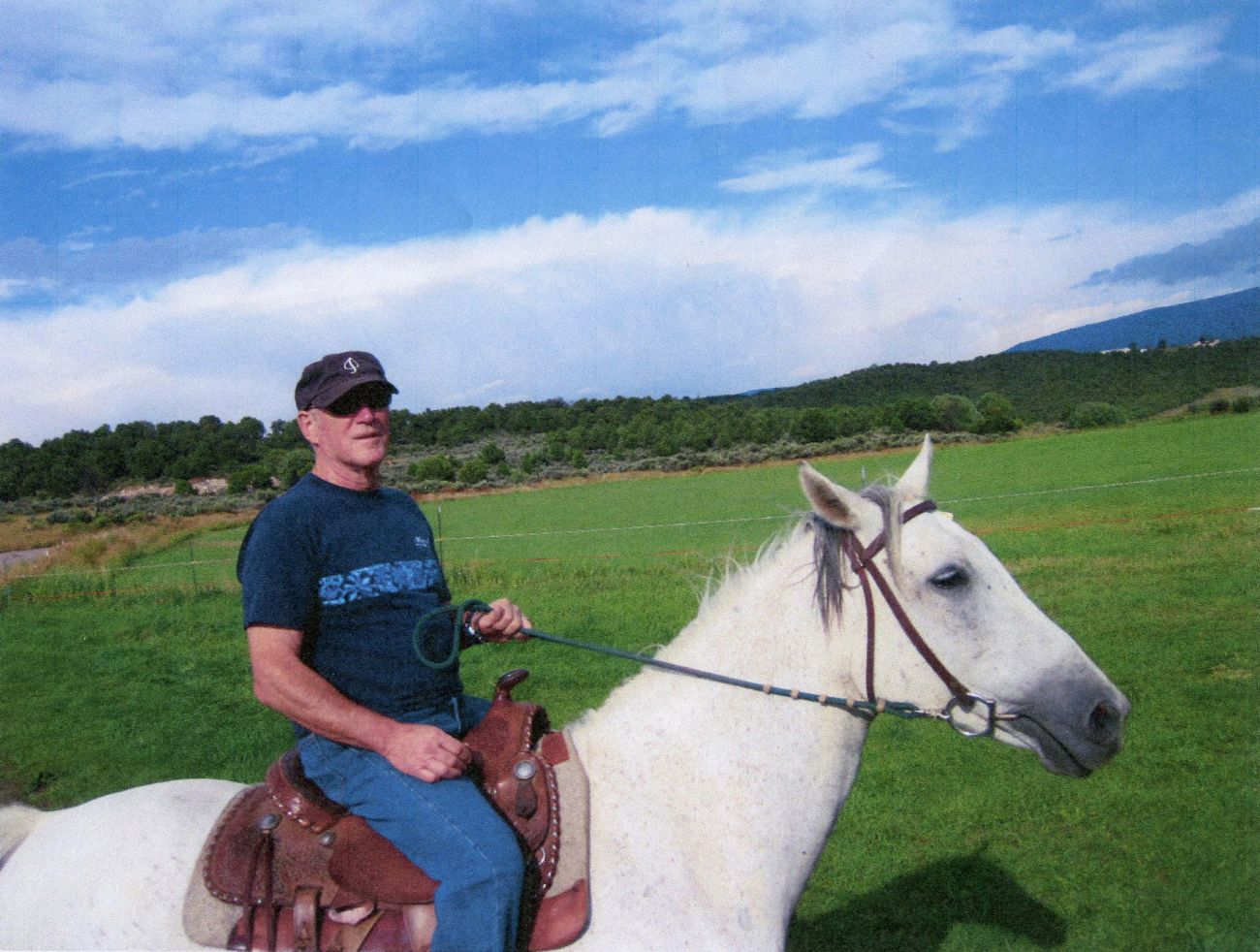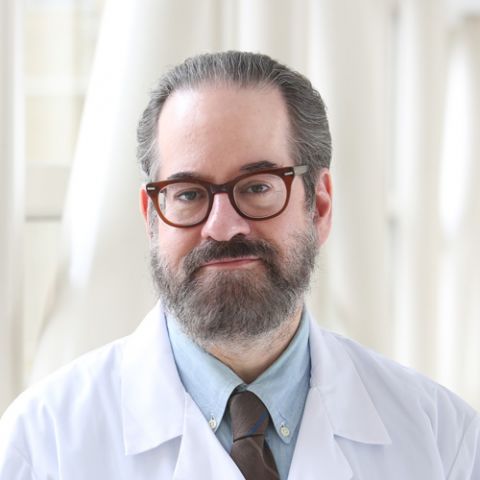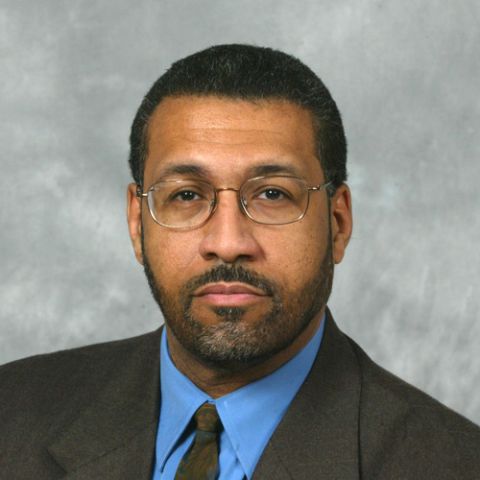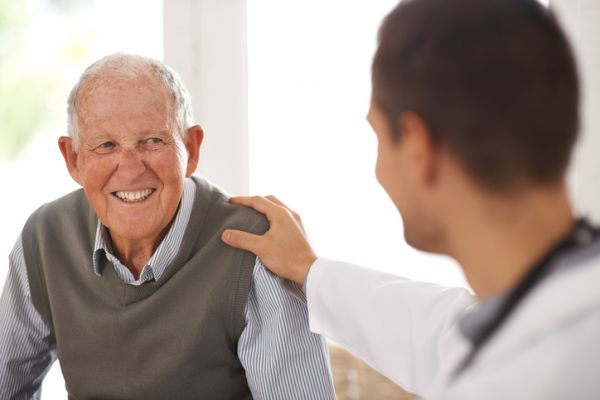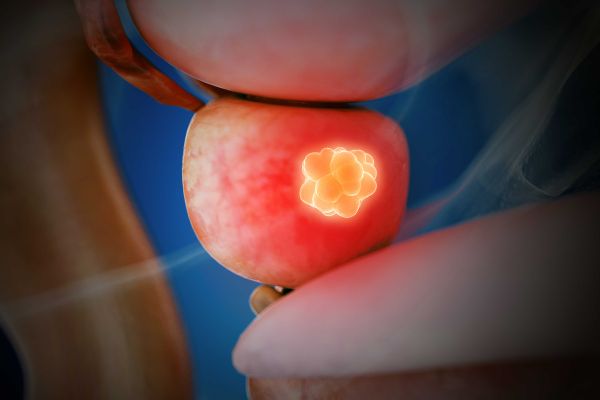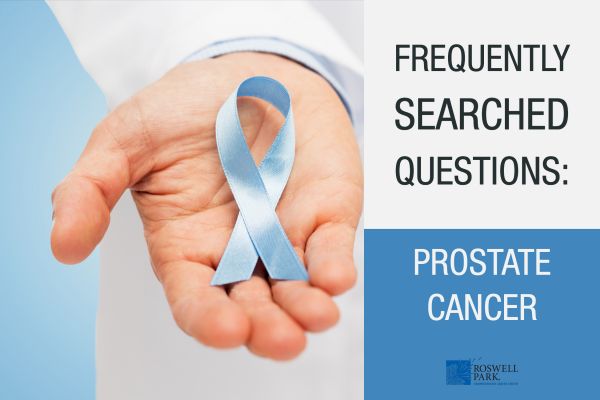"Men don't like to talk about their health." It might be a bit cliché, but that statement rings true for a lot of guys. But when you’re dealing with a serious health issue like prostate cancer, opening up and talking through some of the side effects and emotions that come with a diagnosis and treatment can significantly help men with their recovery.
Speaking with other survivors and breaking down information with his doctor is something that has helped Denny Gallagher during his prostate cancer treatment.
Denny’s Story
Denny became a patient at Roswell Park Comprehensive Cancer Center almost two years ago, but he had already gone through radiation treatment for prostate cancer 12 years earlier. Things looked okay for more than a decade, but an annual follow-up showed Denny's PSA numbers were higher than on previous tests. His urologist recommended he see the oncologist located in the same building. "The oncologist was a very fast talker. He kept saying: 'I think you should do this, do that, do this. I just wanted him to slow down. I'm someone who wants to think about things and look everything over," said Denny. "I immediately began looking for other places to get a second opinion. My sister-in-law — who was a nurse with Roswell Park for over 30 years — told me that I must see Dr. Ellis Levine. He was one of the best doctors she ever worked with at Roswell."
The admiration that Denny's sister-in-law showed for Ellis Levine, MD, Professor of Oncology at Roswell Park, was enough for him to make an appointment.
"After meeting with Dr. Levine, he told me to come back with any questions that I might have. Being the thorough person that I am, I came back with over two pages of questions, which, according to Dr. Levine was more than any patient had ever given him. But he still took the time to answer all of my concerns," says Denny. "He's always been very good about answering questions and willing to deal with my personality, which is probably not like the average patient."
Denny appreciated the time and consideration that Dr. Levine and the rest of the staff were willing to provide him and decided Roswell Park was the right place for his treatment. He started on antigen deprivation therapy (ADT) to lower the levels of androgens (a male hormone) in his body to stop them from fueling the prostate cancer cells' growth. The good news is throughout nearly two years of treatment, Denny's PSA levels remained unmeasurable. However, one of his required drugs has had some pretty uncomfortable side effects.
"I now have very sensitive skin, so I bruise very easily. When I visit my stepson, I get scratched up when his fantastic dog gets so excited that I’m there and he starts to jump on me. Also, if I bump my arm on the doorknob as I'm leaving the house, my arm will bruise. It's kind of ridiculous," says Denny. "I've also lost a lot of muscle mass and have an increase in adipose tissue. I weigh almost exactly the same today as I did when I started treatment. But, despite the fact that I exercise frequently, my belly has gotten much larger. I've also had to give up some physical activities that I love, like skiing, because of reduced bone density.”
Finding Support
Denny wanted to learn everything that could help him through his treatment. During his first month at Roswell Park, he began attending the Prostate Cancer Education Group, a monthly education group session for men treated with ADT and their caregivers.
The group sessions helped Denny learn more about his treatment and to speak with other men who have dealt with some of the same side effects and emotions that he has.
"The group sessions are beneficial for a few reasons. They talk a lot about the technical stuff involved with prostate cancer and that has helped me better understand my treatment. It's giving me some clarity about what's going on with my body. The sessions are also a great place for resources, including reading material on ADT and also things like nutrition and exercise. I'm also able to meet with others who have gone through some of the same things that I'm going through. I've developed relationships with a few of other survivors. They're people that I can quietly, confidently and confidentially talk to about some of the things I'm uncomfortable with. Most men don't want to do that and all I can say is — I'm glad that I got into that program because it opened my eyes about a lot of things."
Living Your Best Life Through Symptom Management
An education group for men treated with hormone therapy.
Learn MoreBefore he retired, Denny worked with corporate executives, religious and military leaders as an organizational development consultant, helping them work on their leadership and communications skills within their organizations. "Naturally, I wanted to help in any way that I could to improve the education groups. I was asked to help coach some of the presenters to boost the dialogue within the group," says Denny.
Denny was on his way to becoming an official Roswell Park Volunteer, but his plans had to be put on hold when he was diagnosed with a second cancer.
Second Cancer and Moving Forward
"I was in California visiting two of my children and their children, just taking a shower one morning when my head started bleeding. I was used to having sensitive skin from the prostate cancer treatment, so at first, I didn't think much of it, but the area wouldn't stop bleeding.
"It took nearly 35 minutes to stop bleeding. Since I was headed back to Buffalo the next day, I immediately scheduled an appointment with my dermatologist in Clarence. When the results came back they looked serious. I decided that since I was already a patient at Roswell, I would make an appointment with Dermatology at Roswell Park to have it looked at."
Denny met with Wesley Hicks, MD, Chairman of the Head and Neck Plastic and Reconstructive Surgery Department, who diagnosed him with a somewhat rare spindle cell carcinoma. "Dr. Hicks told me that the cancer had not spread outside of the dermal layers of skin and that the situation was serious, but not critical. They removed the cancer along with an area of skin about the size a hockey puck from my scalp. Dr. Can Ozturk did a great job on the follow-up plastic surgery," says Denny. "Between the treatment teams for my prostate cancer and now this carcinoma, I have had excellent care from both the doctors and nursing staff at Roswell Park."
As Denny recovers from his second cancer and proceeds with his prostate cancer treatment, he hopes to continue his work with physicians and other survivors to provide a support system for newly diagnosed prostate cancer patients.
"As someone who's been through the treatment, has taken the medications, gone through radiation and dealt with side effects that come with all of it, I'd like to provide newly diagnosed patients a resource as I've found in other survivors," says Denny. "It's important to know that there's someone available that you can go to have a cup of coffee with when you're feeling uncomfortable with something. That someone’s there who’s been through it and can help you understand what you're going through. I’m not a physician, merely a survivor who can relate to other prostate cancer patients."
Editor’s Note: Cancer patient outcomes and experiences may vary, even for those with the same type of cancer. An individual patient’s story should not be used as a prediction of how another patient will respond to treatment. Roswell Park is transparent about the survival rates of our patients as compared to national standards, and provides this information, when available, within the cancer type sections of this website.
